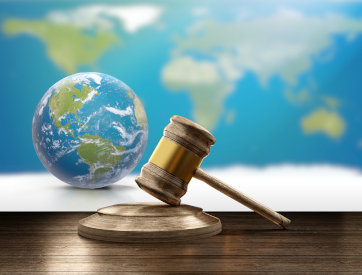Due to the complexity of international law and the inherent cross-jurisdictional considerations, the Australian Government Attorney-General’s Department has established a dedicated Office of International Law (OIL).
The OIL provides the government with legal and policy advice on international law matters, as well as assisting in treaty negotiations and the development of international law projects.
On its website, the Attorney-General’s Department provides insight into the four key areas of work undertaken by the Office of International Law: general international law, international security law, international trade law and international human rights law.
General international law
General international law includes:
- air and space law (e.g. jurisdiction on aircraft)
- law of the sea and maritime law (e.g. freedom of navigation)
- border protection issues (e.g. concerning refugees)
- double taxation and banking
- international environmental law (e.g. concerning climate change)
- laws made by international organisations such as the United Nations
- treatment and jurisdiction over Australians overseas
- resolution of international disputes to which Australia is a party
- foreign state immunity
International security law
International security law includes:
- legal constraints on the use of military force
- international criminal law (e.g. war crimes)
- international humanitarian law (e.g. during armed conflict)
- legal obligations relating to Australia’s military deployments
- international law aimed at countering terrorism
- international law related to aviation, maritime, space and cyber security
- disarmament and counter-proliferation of conventional weapons and weapons of mass destruction (e.g. implementing UN sanctions regimes)
International trade law
International trade law includes:
- international trade law
- investment law
- intellectual property
International human rights law
International human rights law includes:
- compatibility of Australian legislation with Australia’s international human rights obligations
- international human rights law, including in relation to:
- the right to equality and non-discrimination (e.g. on the basis of sex or race)
- other civil and political rights (e.g. the right to a fair trial)
- economic, social and cultural rights (e.g. rights to education)
- children’s rights.


